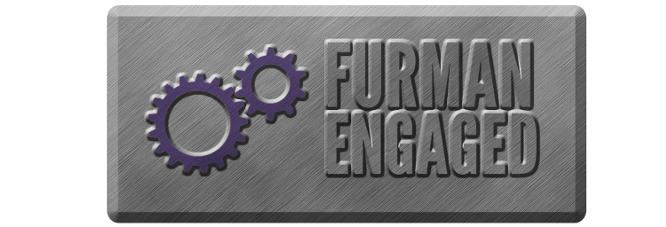Biologically-triggered release of organic dopants from functionalized intrinsically conducting polymer composites
Department, Center, or Institute
Chemistry
Presentation Format
Department Organized Oral Session
Presentation Type
Off-campus research
Description
There is a growing need for antifouling and anticorrosive surfaces in many commercial and industrial fields. Intrinsically conducting polymers (ICPs) such as polyaniline and polypyrrole (Ppy) have interesting electrical properties that can be exploited the design of functional materials with said antifouling/anticorrosive properties. Surface-modified thin films of ICP nanoparticles have been shown to dramatically alter surface properties of materials, including improved antifouling resistance in some cases. ICP’s have been previously shown to readily undergo surface modification through a reaction with thiols. The thiol reaction reduces the cationic polymer, thereby releasing the anionic counterion. We propose a novel system whereby a small, hydrophobic counterion will be trapped within the ICP matrix once a thiol with a large, highly hydrophilic polymer brush binds to the ICP surface. The counterion is then able to undergo a unique, highly controlled, triggered release process solely when the ICP/brush surface comes into contact with relatively hydrophobic proteins or biological species. We characterized our novel system through use of a quartz crystal microbalance, liquid chromatography mass spectrometry, atomic force microscopy, scanning electron microscopy, and x-ray photoelectron spectroscopy, and emerged with a promising controlled release system applicable in the field of biofouling.
Department Organized Oral Session Title
Undergraduate Chemistry Research
Moderator/Professor
Timothy Hanks, Chemistry
Session Number
3
Start Date and Time
4-9-2019 1:45 PM
Location
Patrick Lecture Room, Plyler Hall 126
Recommended Citation
Wetherill, Richard, "Biologically-triggered release of organic dopants from functionalized intrinsically conducting polymer composites" (2019). Furman Engaged!. 344.
https://scholarexchange.furman.edu/furmanengaged/2019/all/344
Biologically-triggered release of organic dopants from functionalized intrinsically conducting polymer composites
Patrick Lecture Room, Plyler Hall 126
There is a growing need for antifouling and anticorrosive surfaces in many commercial and industrial fields. Intrinsically conducting polymers (ICPs) such as polyaniline and polypyrrole (Ppy) have interesting electrical properties that can be exploited the design of functional materials with said antifouling/anticorrosive properties. Surface-modified thin films of ICP nanoparticles have been shown to dramatically alter surface properties of materials, including improved antifouling resistance in some cases. ICP’s have been previously shown to readily undergo surface modification through a reaction with thiols. The thiol reaction reduces the cationic polymer, thereby releasing the anionic counterion. We propose a novel system whereby a small, hydrophobic counterion will be trapped within the ICP matrix once a thiol with a large, highly hydrophilic polymer brush binds to the ICP surface. The counterion is then able to undergo a unique, highly controlled, triggered release process solely when the ICP/brush surface comes into contact with relatively hydrophobic proteins or biological species. We characterized our novel system through use of a quartz crystal microbalance, liquid chromatography mass spectrometry, atomic force microscopy, scanning electron microscopy, and x-ray photoelectron spectroscopy, and emerged with a promising controlled release system applicable in the field of biofouling.

